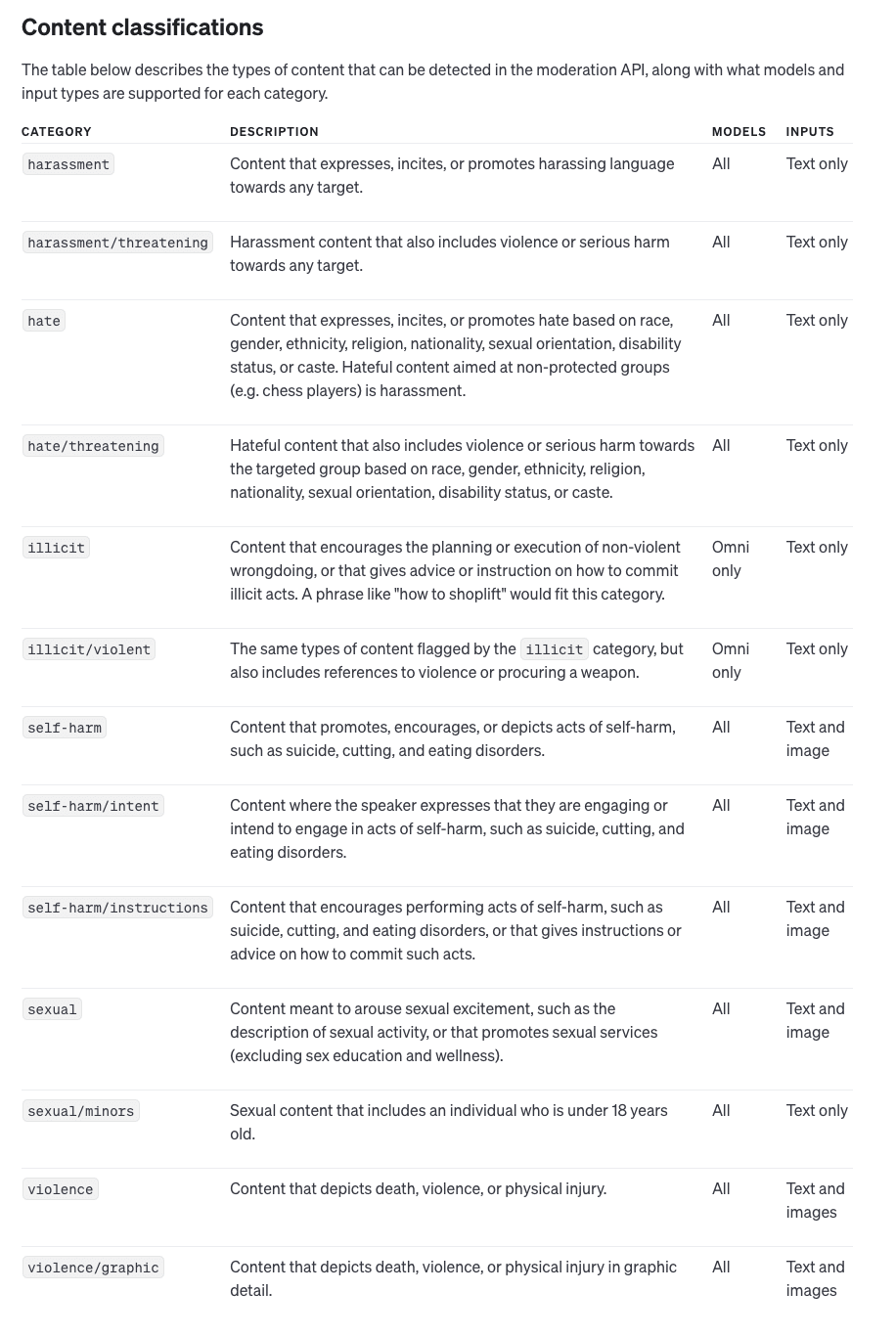4 Best Practices to Prevent OpenAI API Bans and Ensure Compliance
If your enterprise is involved with AI in any aspect, compliance is more critical than ever, especially when leveraging AI models like those provided by OpenAI. What many companies don’t realize is that failure by users to comply with OpenAI’s policies can lead to their API access being banned, often without prior warning. For companies managing multiple users, ensuring adherence to OpenAI’s policies is crucial to maintain uninterrupted access to these powerful tools. Failure to comply with the terms can lead to severe consequences, including bans that could significantly disrupt your business operations.
OpenAI has established a comprehensive set of policies aimed at preventing misuse. These policies not only protect the platform but also ensure the responsible use of AI technologies across industries. Companies utilizing OpenAI’s APIs must be diligent in monitoring user behavior to avoid violations that may lead to penalties or bans. Understanding and navigating these policies effectively is the key to maintaining access and gaining a competitive advantage in the AI space.
Understanding OpenAI’s API Usage Policies
OpenAI’s API usage policies are designed to safeguard the ethical and appropriate use of AI. Misuse of these APIs, particularly through user-generated content, can quickly lead to account suspensions or bans. User misbehavior, such as submitting inappropriate or harmful content, not only violates OpenAI’s terms but also puts entire accounts at risk.
OpenAI actively monitors usage patterns and evaluates hidden actions that might breach their guidelines. For instance, inappropriate content submission or attempts to bypass content filters can lead to significant repercussions. OpenAI hides specific details regarding how it evaluates requests, maintaining such a tight lid on its moderation processes to ensure compliance is met without compromise. By doing so, OpenAI ensures that its models are used in a manner that aligns with its ethical standards.
To avoid these issues, it is essential for developers and enterprises to be proactive in enforcing OpenAI’s guidelines and leveraging built-in tools like the moderation endpoint, which can help in filtering out potentially harmful content before it reaches the API. Understanding the key aspects of misuse and being aware of how OpenAI tracks violations will allow companies to manage risks more effectively.
Challenges Faced by Multi-User Applications
For companies that manage applications with multiple users, the risks associated with API misuse are significantly higher. Each user has the potential to inadvertently or intentionally violate OpenAI’s policies, leading to consequences that affect the entire organization. This makes it vital for developers to understand the unique challenges posed by multi-user environments.
Managing multiple users presents specific challenges such as varying levels of understanding of acceptable usage, inconsistent adherence to guidelines, and the potential for malicious behavior from a small subset of users. Each user interaction must be carefully monitored because a single violation can jeopardize the entire API access for an organization. Moreover, scaling a platform with multiple users introduces complexities in ensuring that all users are compliant without overwhelming the system with manual checks.
Unlike previous AI models that might have been less stringent, OpenAI’s latest AI model comes with stricter compliance guidelines that are closely monitored. Companies must take responsibility for monitoring user-generated content to prevent violations, and this involves implementing automated content filtering and compliance checks. Proactive measures such as integrating OpenAI’s moderation endpoint, setting clear usage policies for end-users, and providing educational resources to users on acceptable content can help mitigate these risks and ensure the continued availability of the API.
By managing individual user behavior effectively and implementing robust monitoring tools, companies can avoid being penalized for the actions of a few bad actors. Investing in user management processes and tools not only helps in compliance but also creates a more trustworthy environment for all users, ultimately supporting the company’s long-term goals with AI integration.
Best Practices to Prevent OpenAI API Bans
To prevent bans and ensure that your API usage remains compliant, it is crucial to implement specific best practices. Here are several strategies that developers and companies can follow:
Use the Moderation Endpoint: OpenAI provides a free moderation endpoint that helps identify harmful content before it reaches the API. This tool is essential for filtering inappropriate content and reducing the risk of penalties.
Rate Limits and Unique User Identifiers: Implementing rate limits and assigning unique user identifiers to each API request can help manage and trace user behavior. By controlling the volume of requests and linking them to individual users, it becomes easier to identify and restrict problematic accounts.
Real-Time Monitoring and Logging: Establish real-time monitoring systems to keep track of API usage. Logging each request allows developers to audit user behavior and detect anomalies early on.
Input Validation: Ensure all inputs are validated to prevent harmful or inappropriate data from being processed by the API. Proper input validation can mitigate risks and improve compliance.
These practices not only minimize the risk of violations but also provide companies with a competitive advantage, as they demonstrate a commitment to responsible AI usage. Incorporating a structured approach to compliance, including using OpenAI’s built-in tools, can ultimately lead to more reliable and effective use of AI models.

Understanding OpenAI’s Moderation Endpoint
The Moderation Endpoint provided by OpenAI is a critical tool for ensuring that harmful content does not make it through the system, thus helping to maintain compliance and prevent bans. The endpoint can analyze both text and image inputs, identifying potentially harmful categories like violence, hate speech, and more.
OpenAI’s moderation endpoint offers the following features:
Omni-Moderation Model: This is the latest version and supports multiple categorization options and multi-modal inputs, making it suitable for both text and images.
Legacy Text Moderation: Older models that support only text inputs with fewer categorization capabilities. However, for new applications, the omni-moderation model is recommended.
Using the moderation endpoint involves passing input data to OpenAI’s API, which then provides a detailed response. This response includes:
Flagged Content: The endpoint sets a flag to true if the input contains harmful or inappropriate content.
Category Scores: A detailed scoring system that indicates the confidence level of the model in its categorization of potentially harmful content.
Category-Specific Data: The endpoint provides an indication of which types of input (e.g., text or image) triggered the categorization, allowing for more precise moderation efforts.
By implementing the moderation endpoint, companies can take proactive action—filtering out flagged content before it reaches OpenAI’s main API. This not only protects the integrity of the AI model but also minimizes the risk of policy violations that could lead to an API ban.
Ensuring Compliance and Competitive Advantage
Compliance is not just about avoiding penalties; it can also serve as a competitive advantage in the AI industry. Companies that adhere strictly to OpenAI’s guidelines are less likely to face disruptions, enabling them to deliver consistent and reliable services to their users.
Moreover, being proactive in ensuring compliance means that companies can harness the full potential of OpenAI’s AI models. By understanding the reasoning process behind OpenAI’s policies and implementing best practices, organizations position themselves as responsible leaders in the AI space. Compliance helps to build trust, both with users and with partners in the industry, allowing companies to differentiate themselves from competitors who may not be as diligent.
The Bottom Line
Responsible API usage is critical for maintaining access to OpenAI’s powerful tools. Failing to comply with OpenAI’s policies can result in severe consequences, including API bans that may significantly disrupt your business operations. Developers and companies must be proactive in managing user behavior, implementing moderation strategies, and adhering to best practices to avoid violations.
Ultimately, following OpenAI’s guidelines not only prevents disruptions but also positions companies as leaders in ethical AI usage. By demonstrating a commitment to compliance, organizations can secure their API access, enhance their competitive advantage, and contribute positively to the evolving AI industry.






